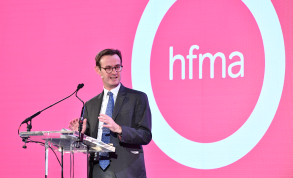News / NHS England in discussions about further plan adjustments
Earlier this month, NHS England announced that it was reducing the national elective recovery target for 2023/24 as a result of the junior doctors’ four days of strike action in April. Speaking to the NHS England board this week, the body’s chief financial officer Julian Kelly said the reduction – from 107% of 2019/20 activity to 105% – was recognition that ‘we cannot afford to do as much elective activity across the whole year as we had originally planned’.
Subsequent to the April strikes, there have been eight further days of junior doctors strikes, plus two days of consultants’ and two days of radiographers’ action.
‘We are currently in discussion with government about how we deal with the June strikes and the July strikes and then, if there is further action, how we will deal with those,’ Mr Kelly told the board. ‘We have been clear throughout the planning process that if circumstances change, we will need to adjust the plans that we have asked people to deliver.’
A paper presented to the board said that the total financial impact of the April action had been assessed at £360m. Mr Kelly said the costs were more or less equally split across three areas. About one third was down to lost activity, which would need to be recovered by paying for higher cost initiatives later in the year. A further third related to the direct net cost of paying premium rates for more senior staff to cover junior staff. And the final third related to issues such as the cost of deferred leave and the time spent by management in preparing for the strikes.
Fifteen out of 42 systems had already submitted deficit plans for 2023/24, producing a combined deficit plan for the year of £720m. The board paper reported that, at the end of May (month two), systems had overspent by £340m compared with planned levels.
Mr Kelly said that some of this was due to how some systems were phasing the implementation of their plans. But he stressed that systems were clearly off target and ‘a large element of that is due to the cost of the strikes’. NHS England is working with those systems furthest from their trajectories and is developing tools to support financial recovery. For example, it is rolling out new data on medicine spend to help acute trusts identify opportunities for better prescribing patterns and for switching to better value biosimilar drugs.
Inflation has added a further challenge in the current year with Mr Kelly estimating it had ‘potentially created up to £900m of pressure’ above the levels forecast at the start of the year.
Mr Kelly also confirmed that NHS England was fully funding systems and providers for the cost of doctors’ pay deals as recommended by the Doctors’ and Dentists’ Pay Review Body. He said that these recommendations – 6% for all doctors with an additional £1,250 for junior doctors – were clearly higher than the 3% pay settlement that NHS England had been funded for. The Department [of Health and Social Care] has been clear that they will fund us for those,’ he said. ‘So, we will fully fund all systems and providers for the costs of those pay deals.’
However, he added that the Department had been in discussion with NHS England about making a contribution to pay costs of about £100m. While it was not taking this forward in the current year, it is talking about asking the NHS to make a £100m contribution to the recurrent cost from next year. With the NHS already tasked with delivering £12bn of efficiency savings over three years, Mr Kelly said that NHS England had been clear that this would involve making cuts to planned national investment programmes.
Related content
We are excited to bring you a fun packed Eastern Branch Conference in 2025 over three days.
This quarterly forum will give CFOs national updates and attendees can discuss pressing issues with colleagues across the healthcare system.